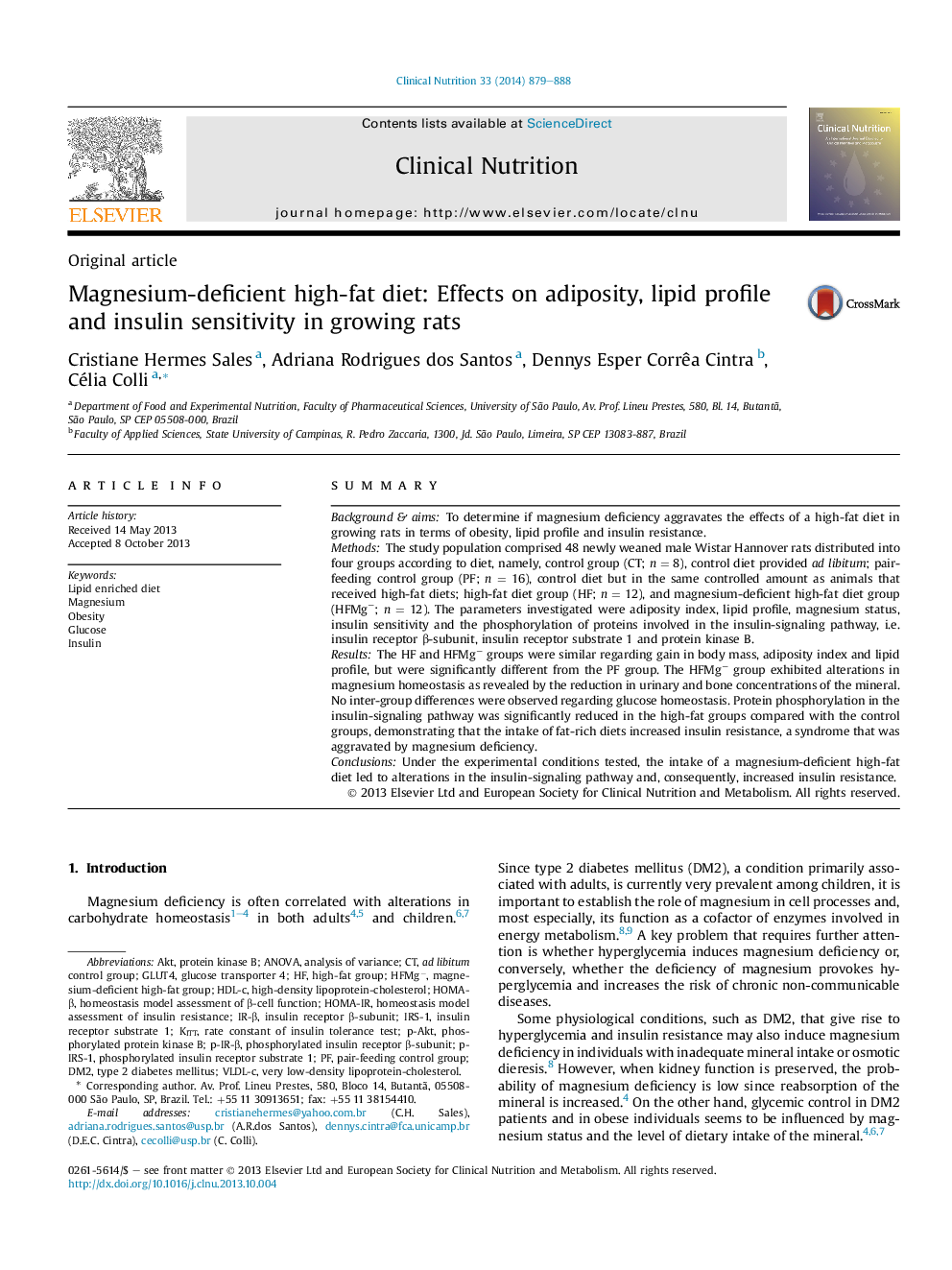| Article ID | Journal | Published Year | Pages | File Type |
|---|---|---|---|---|
| 5872056 | Clinical Nutrition | 2014 | 10 Pages |
SummaryBackground & aimsTo determine if magnesium deficiency aggravates the effects of a high-fat diet in growing rats in terms of obesity, lipid profile and insulin resistance.MethodsThe study population comprised 48 newly weaned male Wistar Hannover rats distributed into four groups according to diet, namely, control group (CT; n = 8), control diet provided ad libitum; pair-feeding control group (PF; n = 16), control diet but in the same controlled amount as animals that received high-fat diets; high-fat diet group (HF; n = 12), and magnesium-deficient high-fat diet group (HFMgâ; n = 12). The parameters investigated were adiposity index, lipid profile, magnesium status, insulin sensitivity and the phosphorylation of proteins involved in the insulin-signaling pathway, i.e. insulin receptor β-subunit, insulin receptor substrate 1 and protein kinase B.ResultsThe HF and HFMgâ groups were similar regarding gain in body mass, adiposity index and lipid profile, but were significantly different from the PF group. The HFMgâ group exhibited alterations in magnesium homeostasis as revealed by the reduction in urinary and bone concentrations of the mineral. No inter-group differences were observed regarding glucose homeostasis. Protein phosphorylation in the insulin-signaling pathway was significantly reduced in the high-fat groups compared with the control groups, demonstrating that the intake of fat-rich diets increased insulin resistance, a syndrome that was aggravated by magnesium deficiency.ConclusionsUnder the experimental conditions tested, the intake of a magnesium-deficient high-fat diet led to alterations in the insulin-signaling pathway and, consequently, increased insulin resistance.
